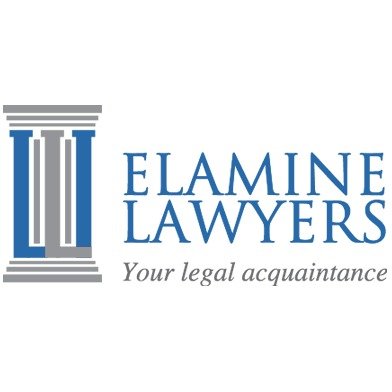Best Administrative Lawyers in Malvern
Share your needs with us, get contacted by law firms.
Free. Takes 2 min.
List of the best lawyers in Malvern, Australia
About Administrative Law in Malvern, Australia
Administrative law in Malvern, Australia, forms a crucial part of the public law system that governs the operations of government agencies and officials. It outlines the legal standards and procedures by which government bodies must operate, ensuring they carry out their functions fairly and justly. In Malvern, as in the rest of Australia, administrative law ensures decisions made by local councils and government agencies adhere to legislative frameworks, protecting citizens' rights while maintaining lawful administrative processes.
Why You May Need a Lawyer
There are several situations where you might require legal assistance in the realm of administrative law in Malvern. These include challenging a decision made by a local council, such as planning and zoning decisions, dealing with issues related to government benefits or licenses, and situations where you feel a government body has not complied with statutory processes. A lawyer specializing in administrative law can assist with reviewing decisions, advising on legal rights, and representing clients in any tribunal or court proceedings.
Local Laws Overview
In Malvern, administrative laws cover various sectors, such as urban planning, environmental regulations, and public order. The key aspects of local laws relevant to administrative matters might include the Planning and Environment Act, which regulates issues like land use and urban development, and the Local Government Act, which establishes the framework for council operations and decisions. Compliance with the Victorian Charter of Human Rights and Responsibilities is also essential in ensuring that administrative actions respect individual rights.
Frequently Asked Questions
What is administrative law?
Administrative law deals with the rules and principles governing the administration and regulation of government agencies and officials.
How can administrative law affect me?
Administrative law can impact you in scenarios where you interact with government bodies, such as applying for permits, receiving government services, or facing disciplinary actions by authorities.
What should I do if I disagree with a government agency's decision?
If you disagree with a decision, you may apply for an internal review or, if necessary, escalate the matter to an administrative tribunal or court for independent review.
Can I represent myself in an administrative tribunal?
Yes, you can represent yourself, although having legal representation may help you navigate the complex processes effectively.
How long do I have to appeal an administrative decision?
Time limits for appeals vary, so it's crucial to seek legal advice promptly to ensure you don't miss any deadlines.
What is a reviewable decision?
A reviewable decision is typically a final decision made by an administrative body, which can be challenged in a tribunal or court.
What role does the ombudsman play in administrative law?
The ombudsman can investigate complaints about government administration to ensure decisions are fair and lawful.
What is judicial review in administrative law?
Judicial review is a process where courts examine the lawfulness of a decision or action taken by a public authority.
Are all local council decisions subject to review?
Not all, but many significant decisions can be reviewed if there is a legal basis to challenge their fairness or legality.
How can I ensure a fair hearing in an administrative process?
Engage a lawyer to advise you on your rights, ensure proper documentation, and help present your case effectively.
Additional Resources
For further help, consider reaching out to organizations such as the Victorian Civil and Administrative Tribunal (VCAT) for dispute resolution, the Victorian Ombudsman for complaints about administrative actions, and community legal centers that provide free legal services.
Next Steps
If you need legal assistance in administrative matters, start by consulting with a lawyer who specializes in this area of law. Gather all relevant documents and records related to your case, and list any evidence that supports your position. You can also explore initial free consultations offered by legal firms to understand your situation better. For disputes involving local councils, consider up-to-date guidance from local government websites and ensure compliance with any procedural steps and timelines.
Lawzana helps you find the best lawyers and law firms in Malvern through a curated and pre-screened list of qualified legal professionals. Our platform offers rankings and detailed profiles of attorneys and law firms, allowing you to compare based on practice areas, including Administrative, experience, and client feedback.
Each profile includes a description of the firm's areas of practice, client reviews, team members and partners, year of establishment, spoken languages, office locations, contact information, social media presence, and any published articles or resources. Most firms on our platform speak English and are experienced in both local and international legal matters.
Get a quote from top-rated law firms in Malvern, Australia — quickly, securely, and without unnecessary hassle.
Disclaimer:
The information provided on this page is for general informational purposes only and does not constitute legal advice. While we strive to ensure the accuracy and relevance of the content, legal information may change over time, and interpretations of the law can vary. You should always consult with a qualified legal professional for advice specific to your situation.
We disclaim all liability for actions taken or not taken based on the content of this page. If you believe any information is incorrect or outdated, please contact us, and we will review and update it where appropriate.








